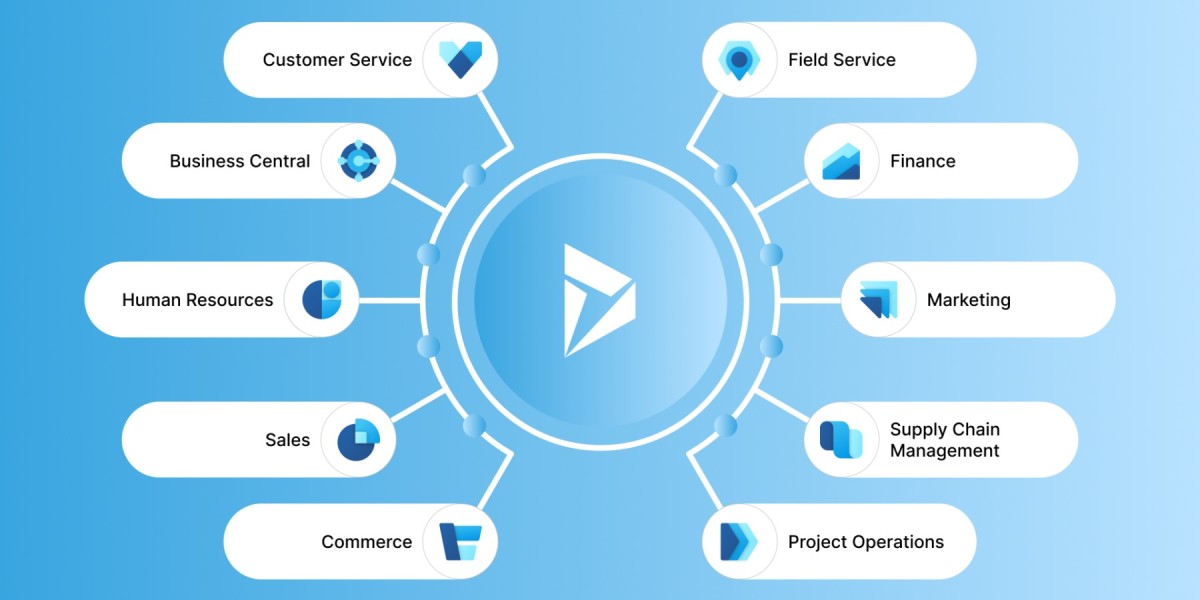Microsoft Dynamics 365 is more than just a business solution, it's a digital transformation engine. Combining the capabilities of Enterprise Resource Planning (ERP) and Customer Relationship Management (CRM), Dynamics 365 enables organizations to unify operations, automate workflows, and gain real-time insights to scale with agility.
As businesses pivot towards data-driven strategies, the demand for effective Microsoft Dynamics 365 implementation services has grown substantially. But successful implementation requires a deep understanding of industry-specific requirements, integration architecture, and long-term scalability.
What Are Microsoft Dynamics 365 Implementation Services?
Microsoft Dynamics 365 Implementation Services refer to the end-to-end process of deploying, customizing, and integrating Dynamics 365 applications within a business ecosystem. These services include:
Requirement gathering and business analysis
Solution architecture design
Data migration & integration
Customization & configuration
User training & support
Performance optimization & maintenance
Organizations that invest in a professionally managed implementation can reduce deployment timelines by up to 40% and operational costs by 15–20%.
Why Businesses Choose Microsoft Dynamics 365
Dynamics 365 is unique in its modular, scalable architecture and AI-powered features that allow seamless adaptation across industries.
Benefits of Implementing Dynamics 365
Unified Operations: Streamlines data across finance, sales, service, HR, and supply chain.
AI & Analytics: Embedded Power BI delivers actionable insights in real-time.
Cloud-Native: Built on Microsoft Azure, it ensures scalability and high availability.
Modularity: Adopt only the apps you need—Sales, Customer Service, Field Service, Finance, etc.
Seamless Integrations: Native compatibility with Microsoft 365, Teams, SharePoint, and Azure Logic Apps.
Industry-Wise Use Cases and Integration Strategies
Dynamics 365 delivers industry-specific capabilities. Let's explore how it integrates and benefits various sectors.
1. Manufacturing
For manufacturing firms, Dynamics 365 integrates with MES (Manufacturing Execution Systems) and IoT platforms to improve production visibility and inventory management.
Key Integrations
Dynamics 365 Supply Chain + Azure IoT Hub: Enables predictive maintenance.
Power Automate: Automates inventory alerts and supplier workflows.
2. Healthcare
Dynamics 365 streamlines patient engagement, automates appointment scheduling, and integrates with Electronic Health Records (EHR) via HL7/FHIR APIs.
Key Benefits
Improved care coordination
Real-time access to patient history
Enhanced compliance with HIPAA and GDPR
3. Retail & E-commerce
Retailers use Dynamics 365 Commerce with POS systems and AI-driven customer insights to personalize user experience and optimize supply chain operations.
Common Tools Used
Customer Insights: Segment customers by behavior and lifetime value
Power Virtual Agents: AI chatbots to support customer service
Retail POS Integration: Real-time transaction tracking and loyalty programs
4. Finance and Banking
For BFSI firms, Dynamics 365 integrates core banking systems (Finacle, Temenos) using Azure Logic Apps and APIs for risk management and regulatory compliance.
Key Technical Advantages
Advanced fraud detection using AI models
Real-time financial dashboards and forecasting
Regulatory compliance with built-in audit trails
Microsoft Dynamics 365 Implementation Process
1. Discovery Phase
Conduct business process analysis
Map requirements to D365 modules
Identify integration touchpoints
2. Solution Design
Design entity models and workflows
Build integration architecture (on-premise/cloud/hybrid)
Establish data migration strategy
3. Configuration & Development
Customize modules using Power Platform
Set up business logic using Power Automate
Develop custom plugins/extensions using .NET
4. Testing & Training
Conduct UAT (User Acceptance Testing)
Provide training through LMS/Teams
Ensure user adoption
5. Go-Live & Support
Performance tuning
Deploy governance policies
Offer Level 1–3 support based on SLAs
Challenges and Disadvantages of Dynamics 365 Implementation
Despite its powerful ecosystem, implementation may face hurdles.
Common Challenges
Data Migration Complexity: Inconsistent legacy data can disrupt migration.
Customization Overload: Over-engineering leads to maintenance headaches.
User Resistance: Poor adoption due to lack of training.
Integration Bottlenecks: API limitations with older systems.
Final Thoughts: Choosing the Right Dynamics 365 Implementation Partner
Partnering with an experienced Dynamics 365 consultant like TechWize ensures that your implementation is strategically aligned, technically sound, and scalable.






